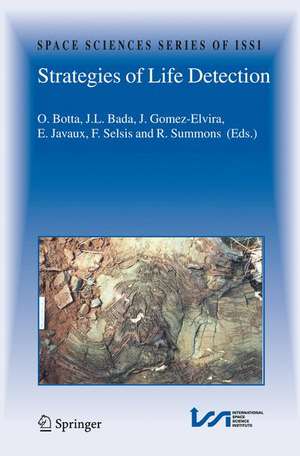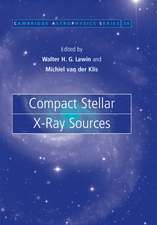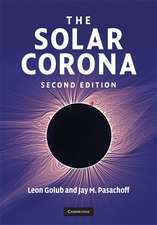Strategies of Life Detection: Space Sciences Series of ISSI, cartea 25
Editat de Oliver Botta, Jeffrey Bada, Javier Gómez Elvira, Emmanuelle Javaux, Franck Selsis, Robert Summonsen Limba Engleză Hardback – 27 aug 2008
| Toate formatele și edițiile | Preț | Express |
|---|---|---|
| Paperback (1) | 842.43 lei 38-44 zile | |
| Springer Us – 29 noi 2010 | 842.43 lei 38-44 zile | |
| Hardback (1) | 1011.45 lei 6-8 săpt. | |
| Springer Us – 27 aug 2008 | 1011.45 lei 6-8 săpt. |
Din seria Space Sciences Series of ISSI
- 15%
 Preț: 654.30 lei
Preț: 654.30 lei - 18%
 Preț: 1019.49 lei
Preț: 1019.49 lei - 15%
 Preț: 647.27 lei
Preț: 647.27 lei - 18%
 Preț: 959.50 lei
Preț: 959.50 lei - 18%
 Preț: 1406.98 lei
Preț: 1406.98 lei - 18%
 Preț: 904.91 lei
Preț: 904.91 lei - 18%
 Preț: 1123.35 lei
Preț: 1123.35 lei - 18%
 Preț: 908.36 lei
Preț: 908.36 lei - 18%
 Preț: 903.93 lei
Preț: 903.93 lei - 20%
 Preț: 577.35 lei
Preț: 577.35 lei - 18%
 Preț: 1115.46 lei
Preț: 1115.46 lei - 18%
 Preț: 1009.70 lei
Preț: 1009.70 lei - 18%
 Preț: 796.61 lei
Preț: 796.61 lei - 18%
 Preț: 739.81 lei
Preț: 739.81 lei - 18%
 Preț: 899.21 lei
Preț: 899.21 lei - 18%
 Preț: 1126.52 lei
Preț: 1126.52 lei - 18%
 Preț: 1016.01 lei
Preț: 1016.01 lei - 18%
 Preț: 1398.80 lei
Preț: 1398.80 lei - 15%
 Preț: 545.15 lei
Preț: 545.15 lei -
 Preț: 436.35 lei
Preț: 436.35 lei -
 Preț: 430.59 lei
Preț: 430.59 lei - 18%
 Preț: 983.65 lei
Preț: 983.65 lei -
 Preț: 412.78 lei
Preț: 412.78 lei - 18%
 Preț: 956.50 lei
Preț: 956.50 lei - 18%
 Preț: 950.52 lei
Preț: 950.52 lei - 18%
 Preț: 951.29 lei
Preț: 951.29 lei - 24%
 Preț: 1060.12 lei
Preț: 1060.12 lei - 18%
 Preț: 958.88 lei
Preț: 958.88 lei - 24%
 Preț: 788.97 lei
Preț: 788.97 lei - 15%
 Preț: 707.00 lei
Preț: 707.00 lei - 18%
 Preț: 951.59 lei
Preț: 951.59 lei - 24%
 Preț: 1052.17 lei
Preț: 1052.17 lei - 20%
 Preț: 574.08 lei
Preț: 574.08 lei - 18%
 Preț: 964.10 lei
Preț: 964.10 lei - 15%
 Preț: 647.40 lei
Preț: 647.40 lei - 18%
 Preț: 961.55 lei
Preț: 961.55 lei - 18%
 Preț: 964.23 lei
Preț: 964.23 lei
Preț: 1011.45 lei
Preț vechi: 1233.48 lei
-18% Nou
Puncte Express: 1517
Preț estimativ în valută:
193.56€ • 210.18$ • 162.59£
193.56€ • 210.18$ • 162.59£
Carte tipărită la comandă
Livrare economică 22 aprilie-06 mai
Preluare comenzi: 021 569.72.76
Specificații
ISBN-13: 9780387775159
ISBN-10: 0387775153
Pagini: 382
Ilustrații: IV, 382 p.
Dimensiuni: 155 x 235 x 20 mm
Greutate: 0.78 kg
Ediția:2008
Editura: Springer Us
Colecția Springer
Seria Space Sciences Series of ISSI
Locul publicării:New York, NY, United States
ISBN-10: 0387775153
Pagini: 382
Ilustrații: IV, 382 p.
Dimensiuni: 155 x 235 x 20 mm
Greutate: 0.78 kg
Ediția:2008
Editura: Springer Us
Colecția Springer
Seria Space Sciences Series of ISSI
Locul publicării:New York, NY, United States
Public țintă
ResearchCuprins
Foreword.- Towards a Definition of Life: The Impossible Quest?.- Infrared Spectroscopy of Solar-System Planets.- Extraterrestrial Organic Matter and the Detection of Life.- Astrobiology and Habitability of Titan.- An Approach to Searching for Life on Mars, Europa, and Enceladus.- Accretion, Trapping and Binding of Sediment in Archean Stromatolites—Morphological Expression of the Antiquity of Life.- Biogenerated Rock Structures.- Morphological Biosignatures in Early Terrestrial and Extraterrestrial Materials.- Gene Transfer and the Reconstruction of Life’s Early History from Genomic Data.- Molecular Biosignatures.- Fossil Lipids for Life-Detection: A Case Study from the Early Earth Record.- Chirality and Life.- Multiple-Sulphur Isotope Biosignatures.- Stable Isotope Ratios as a Biomarker on Mars.- Viking Biology Experiments: Lessons Learned and the Role of Ecology in Future Mars Life-Detection Experiments.- Morphological Biosignatures from Subsurface Environments: Recognition on Planetary Missions.- Exploration of the Habitability of Mars: Development of Analytical Protocols for Measurement of Organic Carbon on the 2009 Mars Science Laboratory.- Urey: Mars Organic and Oxidant Detector.- Raman Spectroscopy—A Powerful Tool for in situ Planetary Science.- Protein Microarrays-Based Strategies for Life Detection in Astrobiology.- On the “Galactic Habitable Zone”.- Earthshine Observation of Vegetation and Implication for Life Detection on Other Planets.- Searching for Signs of Life in the Reflected Light from Exoplanets: A Catalog of Nearby Target Stars.- Exoplanet Transit Spectroscopy and Photometry.- Future Space Missions to Search for Terrestrial Planets.- “Strategies of Life Detection”: Summary and Outlook.
Recenzii
From the reviews:
“This is a collection of papers from the International Space Science Institute workshop … . The book is well laid out, with uniformity in style, clear tables and illustrations, several of which are in colour. … Each paper has an abstract and a full set of references. … this book is likely to grace the shelves of university libraries and specialists in astrobiology, but it is of interest to anyone with a strong fascination … . I certainly recommend it.” (Barrie W. Jones, Contemporary Physics, Vol. 51 (4), 2010)
“This is a collection of papers from the International Space Science Institute workshop … . The book is well laid out, with uniformity in style, clear tables and illustrations, several of which are in colour. … Each paper has an abstract and a full set of references. … this book is likely to grace the shelves of university libraries and specialists in astrobiology, but it is of interest to anyone with a strong fascination … . I certainly recommend it.” (Barrie W. Jones, Contemporary Physics, Vol. 51 (4), 2010)
Textul de pe ultima copertă
The search for life outside the Earth has been one of mankind's most challenging quests. We have reached a level of technology that allows for initial steps toward thorough scientific investigation. The aim of this workshop was to take an interdisciplinary look at the signatures that would be indicative of past or present life on another planet and compare them to biosignatures on Earth.
The purpose of the workshop was also to discuss state-of-the-art in-situ instruments that are envisioned to search for these signatures in the exploration of the solar system, as well as the discussion of concepts descriptive of the search for habitable planets around other stars.
This book is intended to provide a reference to scientists and instrument developers working in the field of in-situ and remote life detection. It can also be used as an interdisciplinary introduction for students and post-doctoral researchers entering this new and exciting field.
The purpose of the workshop was also to discuss state-of-the-art in-situ instruments that are envisioned to search for these signatures in the exploration of the solar system, as well as the discussion of concepts descriptive of the search for habitable planets around other stars.
This book is intended to provide a reference to scientists and instrument developers working in the field of in-situ and remote life detection. It can also be used as an interdisciplinary introduction for students and post-doctoral researchers entering this new and exciting field.
Caracteristici
Biochemists, geochemists, organic chemists, astronomers and instrument developers have combined their efforts to create an integrated account of state-of-the-art life detection methods Combines biosignatures relevant for in-situ investigations with those relevant for remote sensing on exoplanets












